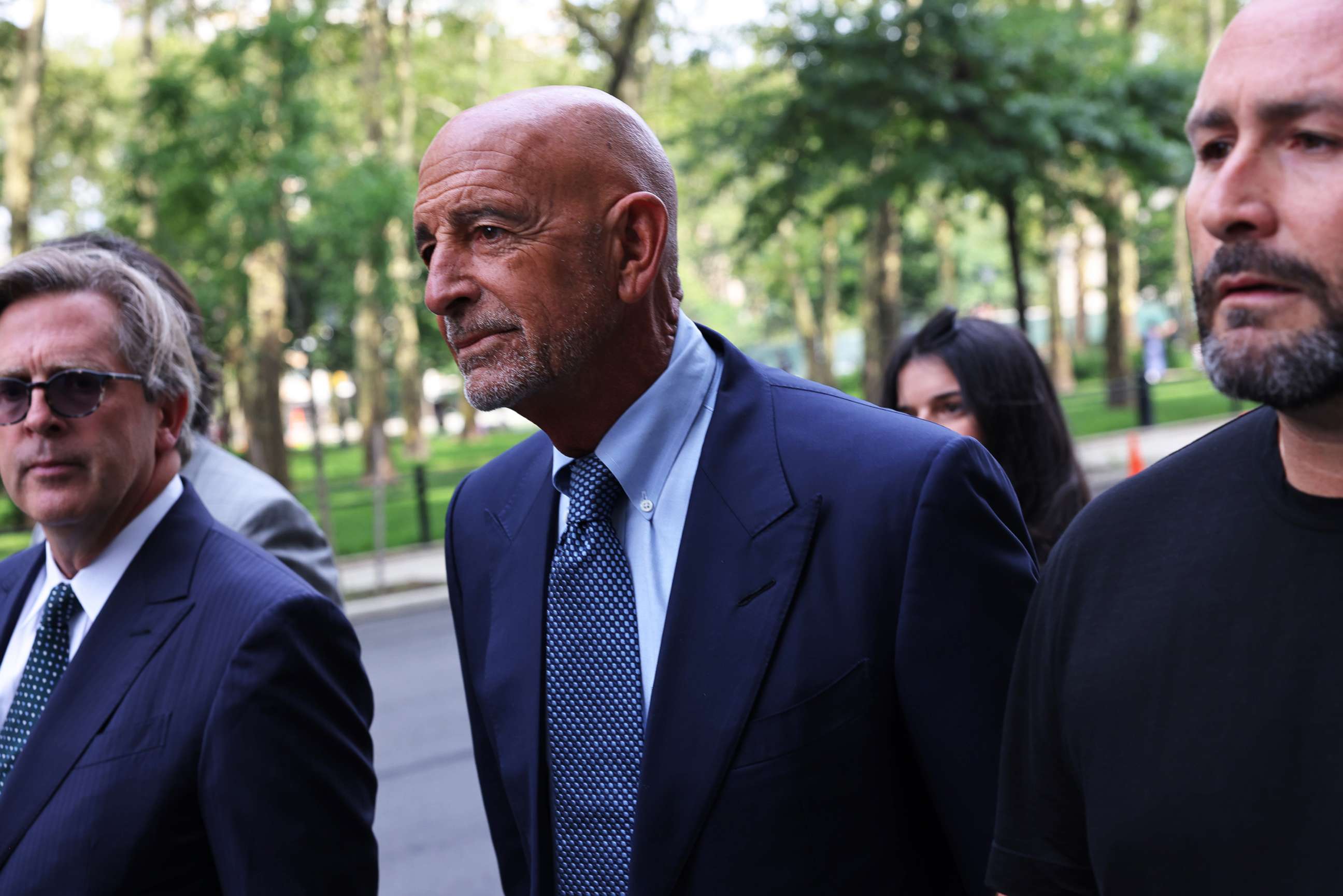Ex-Trump fundraiser worked to 'manipulate' the public on behalf of UAE, prosecutors allege
Tom Barrack, who has pleaded not guilty, went on trial this week.
A federal prosecutor on Wednesday accused Thomas Barrack, a one-time fundraiser for Donald Trump, of leveraging his "unique access" to the former president to illegally act as a foreign agent on behalf of the United Arab Emirates in a trial that may illuminate some of the ways that foreign governments allegedly sought to curry favor with the previous administration.
Barrack, a billionaire California-based businessman and longtime Trump associate, has pleaded not guilty to charges that he acted as a foreign agent for the UAE from 2016 to 2018 and failed to register with Justice Department, which prosecutors say constitutes a crime.
The government also accuses Barrack of lying to the FBI during a 2019 interview about his interactions with the UAE.
Assistant U.S. Attorney Hiral Mehta, delivering the government's opening statement on Wednesday, told jurors that Barrack "tried to influence political system and manipulate the American public" for the "corrupt pursuit of money and power."
"When Donald Trump ran for president, the defendants saw an opportunity," said Mehta, who accused Barrack and co-defendant Matthew Grimes (who has also pleaded not guilty) of seeking to leverage their "unique access to Donald Trump to gain power and money for themselves."
Over the course of what is expected to be a month-long trial in New York, Mehta said jurors would see evidence in the form of text messages, business transactions and travel records proving that Barrack "acted as the eyes, ears and voice of the UAE" within the Trump campaign and administration.

Barrack kept his UAE interlocutors apprised of Trump campaign and White House deliberations, Mehta alleged, including "very sensitive and very confidential information" about the Republican Party platform and appointments to key political posts within the administration.
Michael Schachter, delivering the opening statement for Barrack's defense team, pledged to present evidence that would undermine the government's case and make it "impossible to conclude" that Barrack committed the alleged crimes, adding that Barrack "would never do anything to harm American interests."
"[The government's] accusations are nothing short of ridiculous. Tom Barrack was never under anybody's direction. Tom Barrack was never under anybody's control," he said. "Tom Barrack was his own man [and] said things because he wanted to."
Schachter also sought to politically distance Barrack from Trump, though he acknowledged that the two had known each other for 30 years. Schachter said Barrack privately disagreed with many of the Trump administration's policies, including on the southern border wall, and claimed Barrack had twice voted for President Barack Obama.
"Tom didn't work for Donald Trump and certainly did not control him," Schachter said. "This case is not about Donald Trump. It's not about your feelings or my feelings about Donald Trump."

Prosecutors and defense counsel spent Monday and Tuesday choosing 12 jurors and four alternates, who were sworn in and seated late Wednesday morning ahead of opening statements.
During the jury selection process, U.S. District Judge Brian Cogan questioned prospective jurors on a range of issues pertaining to the case, including whether any political convictions may cloud their ability to fairly evaluate the evidence presented to them. Cogan suggested that former Trump administration officials or the former president himself may appear in the case as witnesses.
One person who was eventually selected as a juror conveyed to the judge that she followed the 2016 presidential election closely and had strong feelings regarding Trump but assured the court that she could manage to those feelings aside in the spirit of fairness.
"I don't mean any disrespect to the former president," Cogan replied. "But if we exclude anybody who has strong feelings about the former president, we may not be able to seat a jury."




